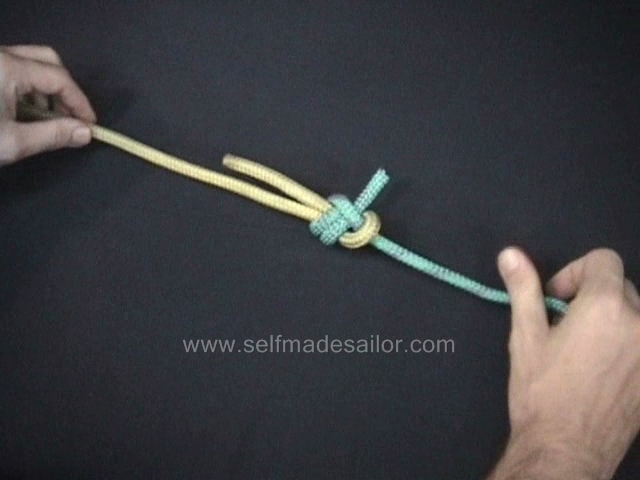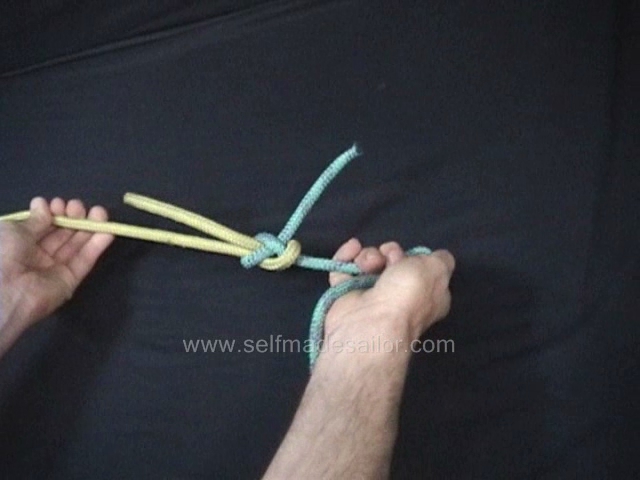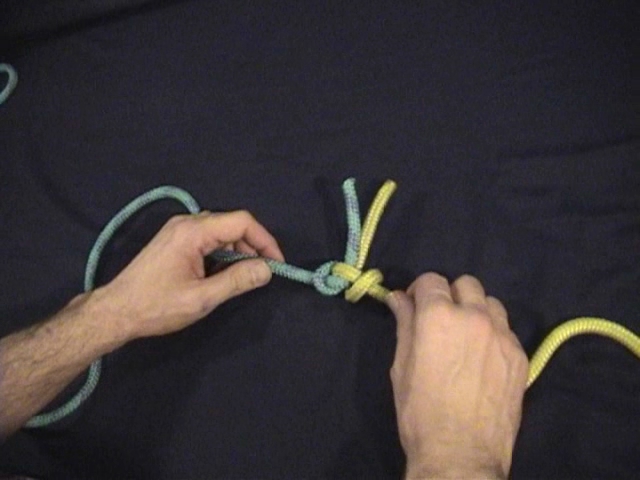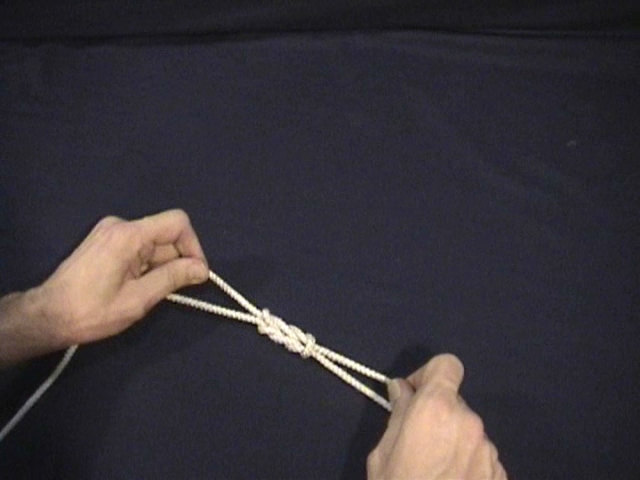Carrick Bend - A decorative and practical knot used for tying two ropes together. The first photo shows it tied snugly but not under tension. The second photo shows the knot after tension has been applied.
Back to the top | Back up to Quick Navigation
Double Sheet Bend - A normal sheet bend with an extra tuck for extra security.
Back to the top | Back up to Quick Navigation
Grass Bend - One of the best knots for attaching very stiff materials together - seat belt webbing, for example.
Back to the top | Back up to Quick Navigation
Reef Knot - A good quick way of connecting two ropes together. Can be slipped for easy untying (or double-slipped for tying your shoes!).
Back to the top | Back up to Quick Navigation
Sheet Bend - Good for connecting a rope to another. Unties easily and can be used for ropes of differing diameters.
Back to the top | Back up to Quick Navigation
Strait Bend - An alternative to the Sheet Bend - a very secure way of joining two ropes together.
Back to the top | Back up to Quick Navigation
Surgeon's Knot - A more secure knot than a basic reef knot. It can be tied symmetrically, asymmetrically, and slipped. It is actually a very good alternative to the usual double-slipped reef knot for tying shoes (I use this for my own shoes) with round laces. Round laces tend to come undone easily with a reef knot, compared to the older-style flat laces.
Back to the top | Back up to Quick Navigation
Thief Knot - The story goes that this was originally used to catch a thief, as the name suggests - if a sailor suspected someone to be going through his bag, he could tie this Reef Knot look-alike, and if he found the bag secured with a regular Reef Knot, he'd know that someone had been snooping. You'll see that in the Reef Knot, the free ends are both on the same side of the knot whereas with the Thief Knot, they are on opposite sides.
Back to the top | Back up to Quick Navigation



